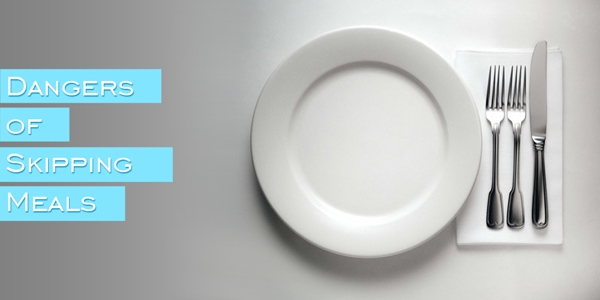The frantic pace of modern life and/or the urge to lose weight often compels people to skip meals but what’s important here is to understand that skipping meals can have serious repercussions on the overall health and well-being.
Here are a few health risks associated with skipping meals:
When you miss a meal, your digestion becomes erratic and the body finds it difficult to break down a big meal which automatically results in weight gain. This is the reason why people who skip meals to lose weight always tend to gain the weight back. The human body utilizes the food that is consumed as fuel. When you skip meals, the body begins to utilize stored fats as fuel in order to carry out its normal functions. This can prove to be harmful in the long run.
When you eat, you provide your body with essential nutrients but when you starve yourself, the body’s metabolic process is disrupted. This results in reduced energy levels and makes you feel weak and lethargic. This is precisely why it is very important for people who are physically active to eat small portions of food every 2 hour so as to conserve their energy. In order to have a healthy metabolism, you must have at least 3 nutritious meals in a day.
Skipping meals can make you feel hungry and irritable. Mood swings are common amongst people who skip meals and eat after long intervals.
When you skip a meal, your blood sugar drops dramatically. This not only makes you feel sluggish and tired but also wrecks havoc with the insulin in your body. If you make it a habit to skip meals, you can be exposing yourself to the risk of developing Diabetes later in life.
Skipping meals and restricting calories will create cravings. Also you might end up eating fatty foods (pastries and ice cream), which may result in too much consumption of fats. When you give in to these cravings, it may trigger high blood sugar
Skipping meals and not drinking enough water can make you feel dizzy especially in the hot summer months and after exercise. Try to eat 3-6 meals throughout the day, specifically within every 2 hours. These meals do not have to be huge meals, but enough to get your metabolism going.


